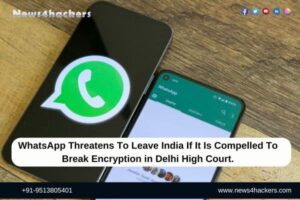While Fighting Hamas, Israel Faces a Barrage of Cyberattacks, which includes Some Links to Russia

Various hacking groups, including some with affiliations to Russia, are engaging in cyber attacks against Israeli government and media websites. These groups have formed alliances with Hamas, a Palestinian militant organization, which recently carried out a series of lethal operations within Israel.
Killnet, an organization claiming to consist of Russian volunteer hackers driven by patriotic motives, said on Sunday its intention to direct distributed denial-of-service (DDoS) assaults on all Israeli government networks. DDoS attacks inundate websites with excessive traffic, rendering them inaccessible. The organization attributed responsibility for the bloodshed to Israel and leveled accusations against the country for its alleged support of Ukraine and NATO. Killnet subsequently asserted responsibility for the temporary disruption of an Israeli government website and the website of the security agency Shin Bet on Sunday.
The veracity of the group’s claim could not be readily verified. According to the website monitoring platform check-host.net, both websites had an outage on Sunday.
In the meantime, it has been reported that Anonymous Sudan, a hacker collective believed by cybersecurity experts to have affiliations with Russia, has expressed its endorsement of the “Palestinian resistance” and has claimed responsibility for launching cyber attacks on the website of the Jerusalem Post. As a result of these actions, the website experienced a temporary disruption on Monday morning. In a formal statement published on the social media platform X, previously referred to as Twitter, the newspaper conveyed that it had encountered “repeated cyberattacks.” The website has subsequently been restored.
According to Mattias Wåhlén, a threat intelligence expert at the cybersecurity firm Truesec AB, there is evidence indicating that further Russian hacktivists are aligning themselves with Hamas and actively providing support in their conflict with Israel. The actions undertaken by the individuals in question have a resemblance to opportunistic strikes. The occurrence of conflicts garners significant media attention, thereby attracting the interest of organizations such as Killnet, which want to profit from conducting Distributed Denial of Service (DDoS) assaults. The aforementioned statement continues to convey the notion that Russia aligns itself with Hamas and opposes Israel.
Numerous self-proclaimed hacktivist groups asserted their involvement in initiating cyber attacks against Israeli infrastructure, namely targeting websites affiliated with power plants and missile alert systems. The verifiability of numerous attacks remains uncertain due to a lack of independent confirmation.
According to cybersecurity firm Group IB, a mobile phone application utilized for issuing missile alerts to Israelis during times of conflict has been hijacked by a hacker group known as AnonGhost. According to Group IB and the screenshots shared by the hackers, the app’s vulnerability was utilized by the hackers to introduce fabricated notifications containing statements like “death to Israel” and “the nuclear bomb is coming,” accompanied by a swastika symbol. The Group IB report indicated that the application in question seemed to have been eliminated from Google’s Play Store, where it had accumulated a total of 1 million downloads. The developers did not provide a response to the request for remark.
In a message disseminated on the messaging platform Telegram, AnonGhost expressed its unwavering commitment to vocal opposition against Israel, emphasizing its refusal to maintain a condition of silence.
Israel frequently experiences cyberattacks, with certain instances being attributed to Iranian hackers on a consistent basis. Nevertheless, the involvement of Iran’s hacking forces in the ongoing fight remained uncertain at this point.
Proponents of the Israeli cause have undertaken offensive actions by means of cyberattacks, specifically targeting Palestinian entities. A certain collective, self-identified as the Indian Cyber Force, claimed responsibility for the disruption of the Palestinian National Bank’s website and Hamas’s website on the day of Sunday. Both remained unreachable on Monday. The bank’s whereabouts were untraceable, thereby preventing any opportunity for comment.
According to Gil Messing, the chief of staff at Check Point Software Technologies Ltd., a prominent Israeli cybersecurity business, the hacks have thus far had minimal consequences. The recent days did not exhibited significant prominence in the realm of cyber activities. According to Messing, certain parties engaged in Distributed Denial of Service (DDoS) operations targeting news websites and government websites. However, these attacks were not deemed severe or prolonged. Overall, thus far, this front lacks significance. This, of course, is subject to change.
According to Rob Joyce, the Director of Cybersecurity at the National Security Agency, the ongoing fight has not yet witnessed a significant cyber element. However, the agency has observed limited denial-of-service attacks and tiny instances of online defacement. Additionally, there is an anticipation that external entities would contribute to the dissemination of Hamas’s messaging.
During his address at a security conference held in Sea Island, Georgia, the speaker expressed the possibility of forthcoming big events, an increase in hacktivist activities, and a rise in individuals resorting to cyber warfare to protect their respective causes. The level of sophistication in the initial stages will be limited. Occasionally, one’s impact can be significant without the requirement for sophistication.
About The Author:
Yogesh Naager is a content marketer who specializes in the cybersecurity and B2B space. Besides writing for the News4Hackers blog, he’s also written for brands including CollegeDunia, Utsav Fashion, and NASSCOM. Naager entered the field of content in an unusual way. He began his career as an insurance sales executive, where he developed an interest in simplifying difficult concepts. He also combines this interest with a love of narrative, which makes him a good writer in the cybersecurity field. In the bottom line, he frequently writes for Craw Security.
Read More News Here





